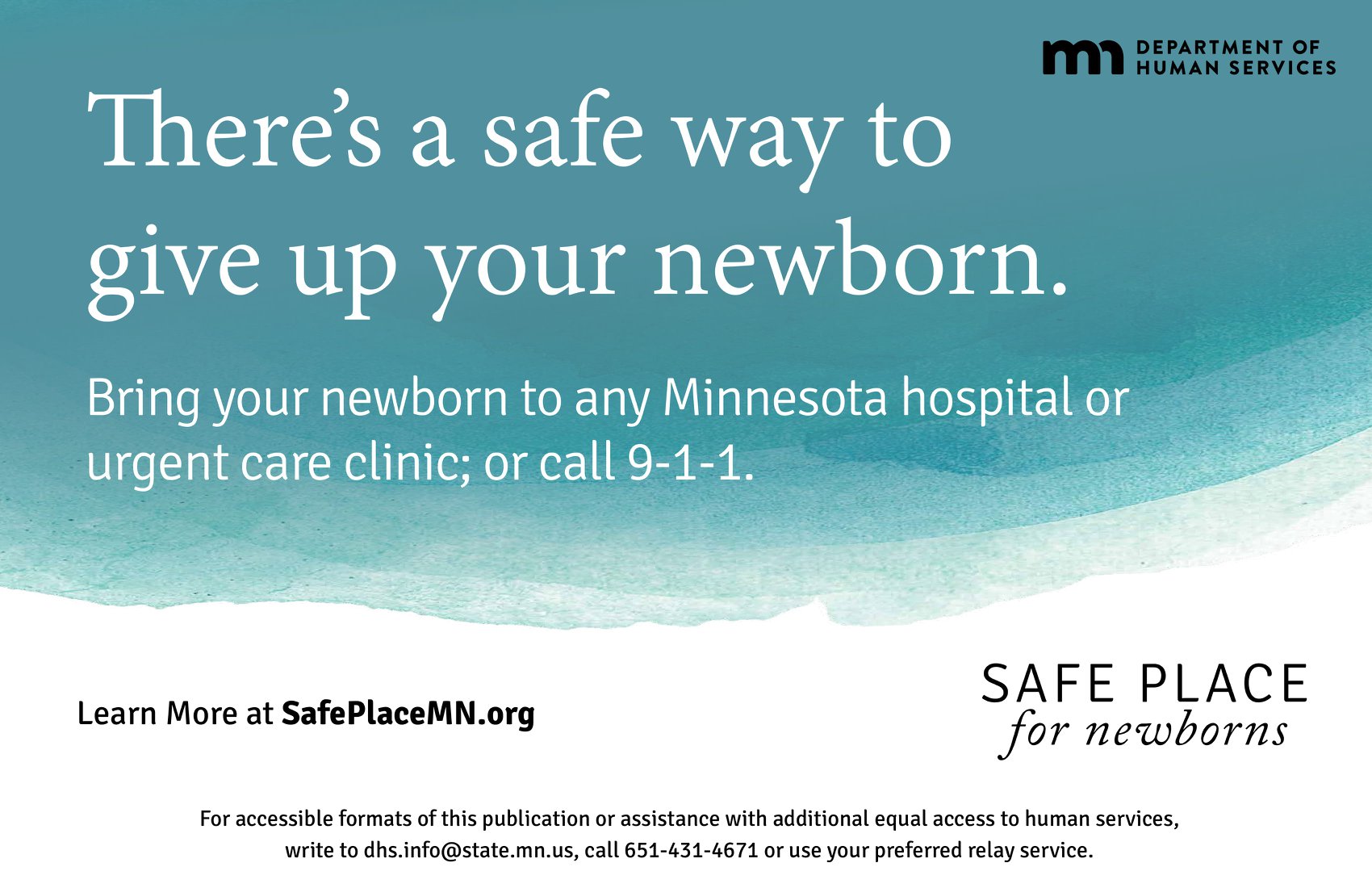Exceptional care for your growing family.
The Birth Place at Windom Area Health is committed to making women champions of their birth experience. We provide state-of-the-art equipment and facilities, as well as resources and support to help each woman make informed decisions regarding her care.
We understand every journey through pregnancy and childbirth is different. We will be there for you and your growing family every step of the way.
To learn more about the Birth Place, free classes, or to take a tour, call 507-831-2400.
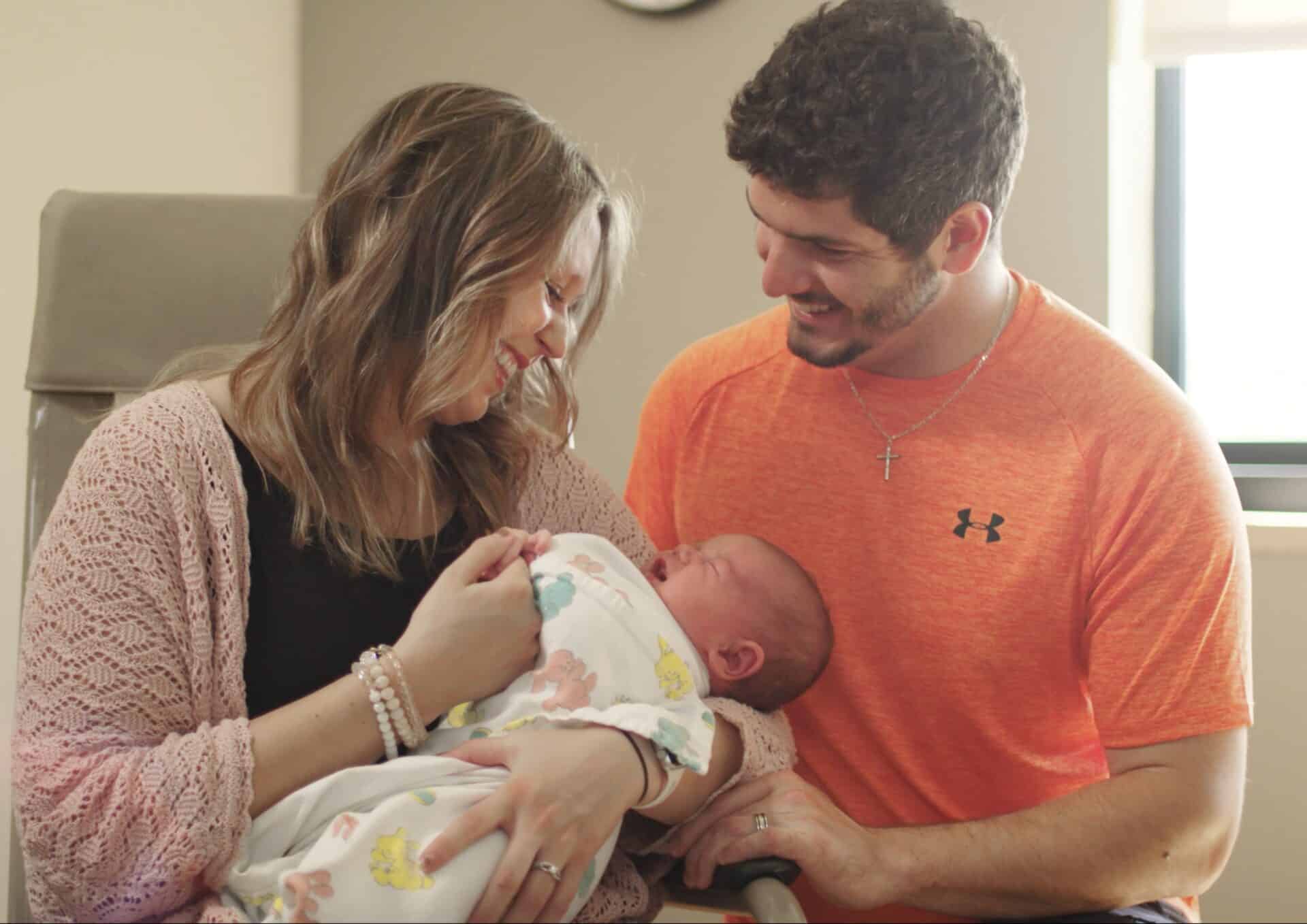
Planning for Baby
Birth Place Services
The Birth Place staff is committed to your comfort. Our services are designed to enhance your birth experience, and include:
- Individual pain management plans; Anesthesia providers on call 24/7
- Lactation Counselor: On staff to meet with new moms and offer support and education entire hospital stay.
- Complimentary Great Beginnings follow up appointments for mom and baby and/or phone calls. (See Below)
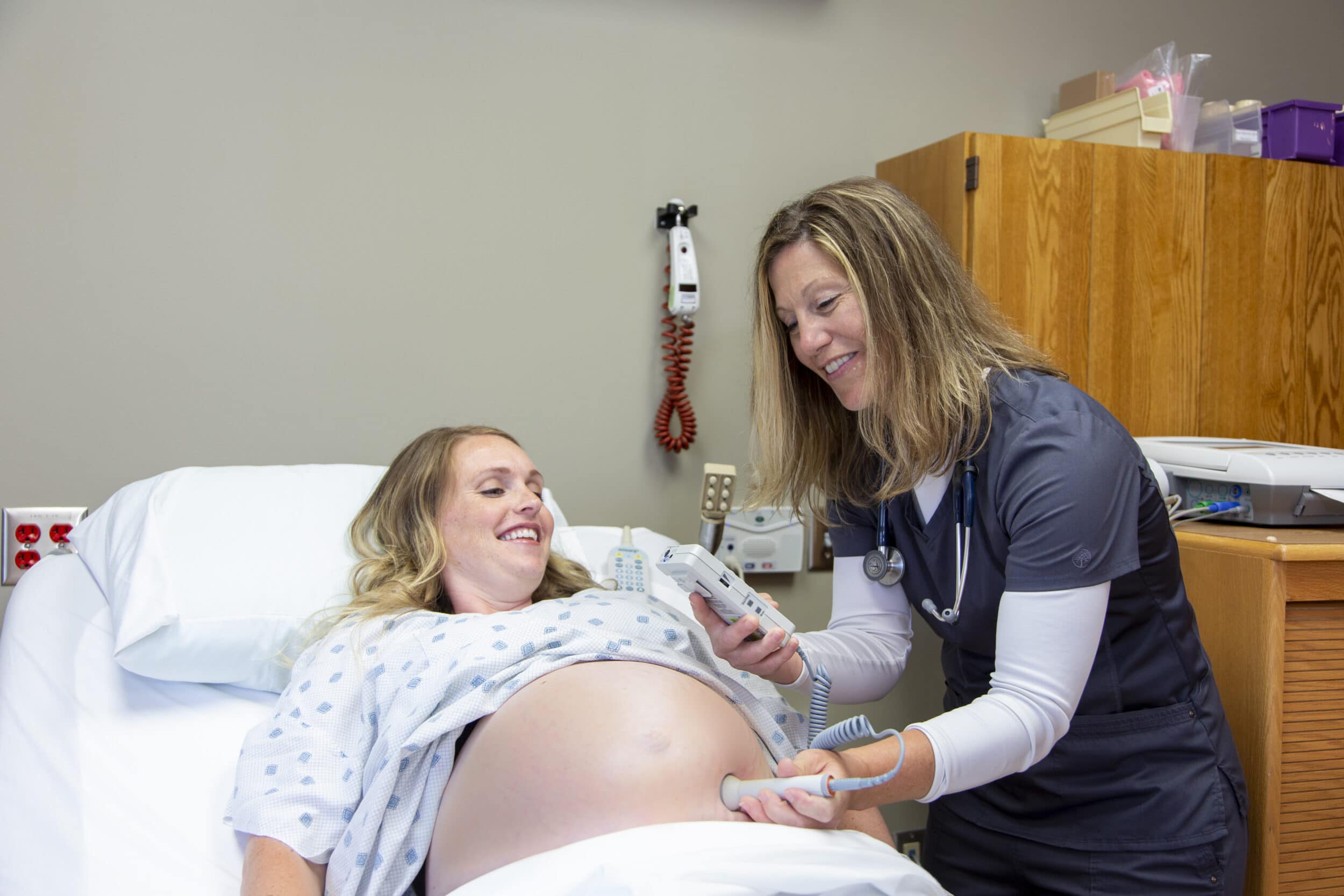
- Neonatal and Newborn Infant Hearing Screenings: One in a thousand babies in Minnesota who seem healthy at birth have a hidden disease. Minnesota state law (144.125) requires screening ALL newborns between 24-48 hours after birth, to ensure the health of all infants born in our state. This neonatal screening provides information on more than thirty-five rare diseases. If any of these diseases are found and treated early, serious problems may be prevented. While neonatal screening is crucial to a newborn's health, parents may sign a waiver to opt out of the screening.
- Safe Place for Newborns Program (See Below)
- Tours Available!
Birth Place Classes
The Birth Place understands that the many choices involved in pregnancy and childbirth can be overwhelming. Helping you to make informed healthcare decisions is our priority, which is why the Birth Place is committed to providing education, resources, and support to expecting parents. Because having a child is a family event, both Moms and Dads are encouraged to attend our educational sessions. Our education and support series are all taught by our OB/Nursery Coordinator and Lactation Counselor.
Prenatal Education Series
This is a 3-week program (6:30 p.m. to 8:30 p.m. on Tuesday evenings) covering labor and delivery patterns, possible unexpected outcomes, pain management techniques, breastfeeding, the importance of nutrition and exercise, and tips on caring for yourself and a newborn.
Breastfeeding Class
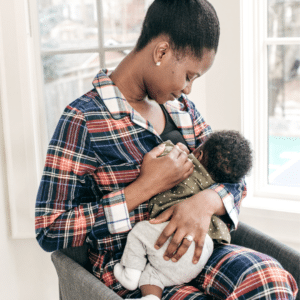 This is a two-hour program (6:30 to 8:30 p.m. on Tuesday evenings) for parents considering breastfeeding for their newborn. Topics of the class include the benefits of breastfeeding, various holds and latching tips, pumping basics and breast care. Dads are encouraged to attend this course.
This is a two-hour program (6:30 to 8:30 p.m. on Tuesday evenings) for parents considering breastfeeding for their newborn. Topics of the class include the benefits of breastfeeding, various holds and latching tips, pumping basics and breast care. Dads are encouraged to attend this course.
To register for these free classes or to learn more information, contact 507-831-2400. **Classes are subject to cancellation if attendance levels are low.**
Birth Place Facilities
The Birth Place is a separate wing of our inpatient unit, dedicated to the birth and care of your new addition. The Birth Place patients enjoy modern day comforts and conveniences in our family-centered facilities, including:
- Spacious, private Labor and Delivery rooms with whirlpool tubs
- Private Post-partum rooms, each with bathroom and whirlpool tub
- Each room includes sleeping accommodations for dads
- Family room for Birth Place visitors
- Locked and monitored Newborn Nursery
- Cuddles, a security system for your baby
- Nurses Station at nursery for enhanced care
- Outdoor courtyard
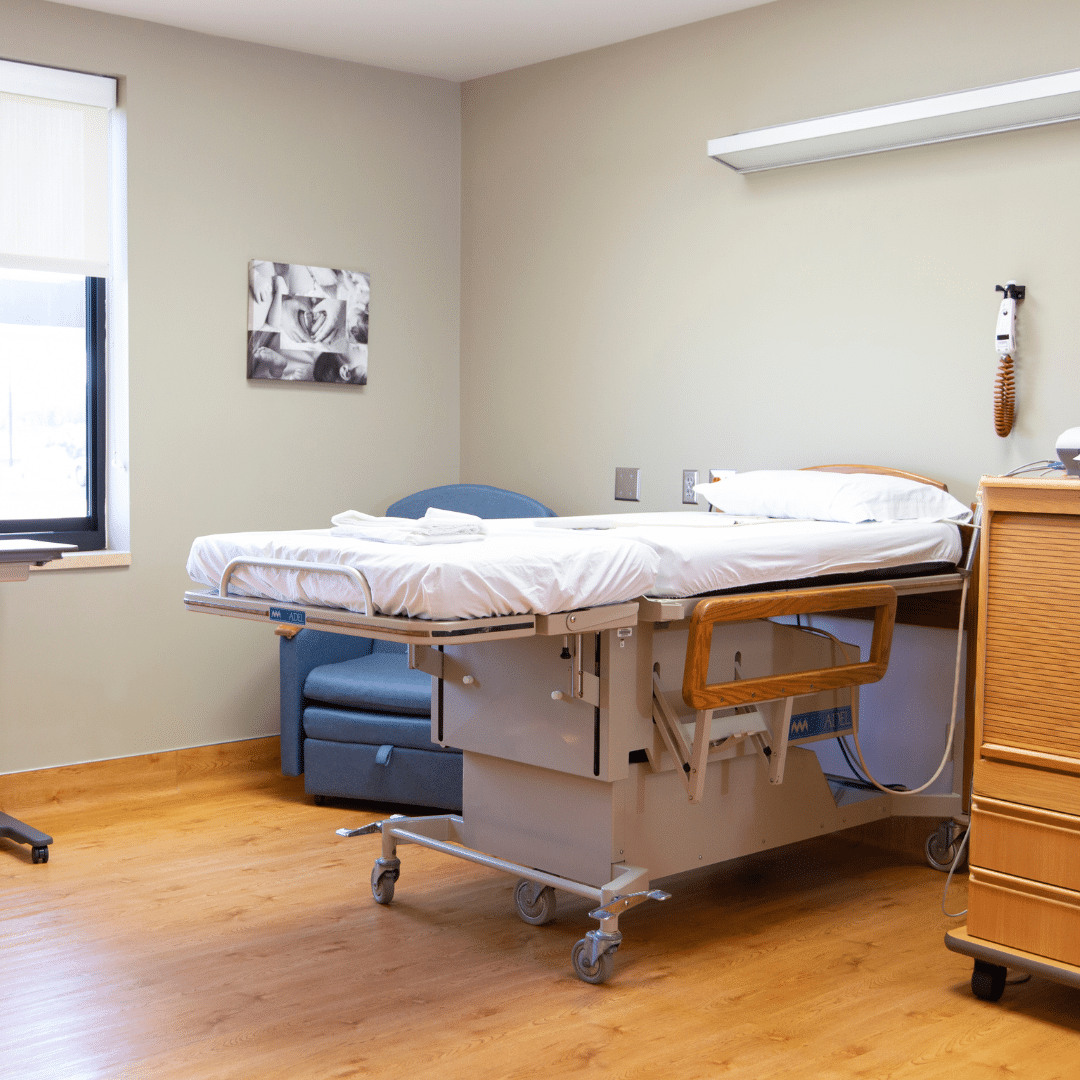

Delivery and Aftercare
Skin-to Skin
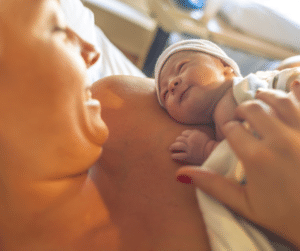
Skin-to-skin, sometimes referred to as 'kangaroo care,' means your baby is immediately placed on your chest, belly down, after delivery. This is a once in a lifetime opportunity to have uninterrupted time to meet your baby and provide him or her the benefits of this direct contact.
While skin-to-skin is important during those first minutes after delivery, it can be practiced during the rest of your hospital stay and at home. The longer, and more often skin-to-skin is practiced in the days after birth, the greater the benefits.
We encourage dads to snuggle, too!
The American Academy of Pediatrics recommends at least 2 hours per day of skin-to-skin during the first month of life, which has benefits for bonding, soothing, and keeping your baby alert for breastfeeding.
Talk with your doctor about your birth plan. The Birth Place supports skin-to-skin and will help you carry out your wishes.
Benefits of Skin-to-Skin
Your chest is the best place for your baby to adjust to life outside the womb. The benefits are so well researched and documented, virtually all health organizations support and recommend skin-to-skin. Benefits include:
- Stabilizes baby's breathing/oxygen
- Maintains baby's temperature
- Stabilizes baby's glucose levels
- Babies cry less and calm more easily
- Increases early breastfeeding success
- Strengthens baby's brain development
- Enhances the birth experience for mom
- Triggers a calming effect for mom
- Promotes mother/baby bonding
- Increases milk production
- Promotes attachment behaviors
How it works:
Vaginal Deliveries: Your baby will be placed on your chest right after birth, covered with a blanket and given a hat. Measuring and weighing can wait. All exams and essential cares can be performed while baby is held skin-to-skin. For your safety, hospital staff will monitor you both during this special time.
Cesarean Deliveries: Your baby will be put on your chest as soon as you and your baby are ready. You can unwrap and cuddle your baby shortly after birth and even in the OR if it's considered safe. Or dad can provide skin-to-skin until you are able!
Both: You can keep your baby like this for as long as you want. Ideally, the baby will nurse in this position within the first hour if you chose to breastfeed.
Newborn Infant Hearing Screenings
Windom Area Health is pleased to announce newborn hearing screening is now being performed on all babies born at Windom Area Health. Newborns will undergo a screening process, which is part of the “standard of care” received (like a PKU test for newborns). This test is performed while infants are sleeping to get the most accurate results.
To test the baby’s hearing earphones are placed over the baby’s ears and an adhesive-back sensor is attached to the forehead. The screener sends a series of soft clicking sounds to the baby’s ears through the earphones. Sensors pick up the response from the baby’s brain and send it to the ALGO (Auditory Brainstem Response technology) screener, where it is analyzed automatically for immediate results.
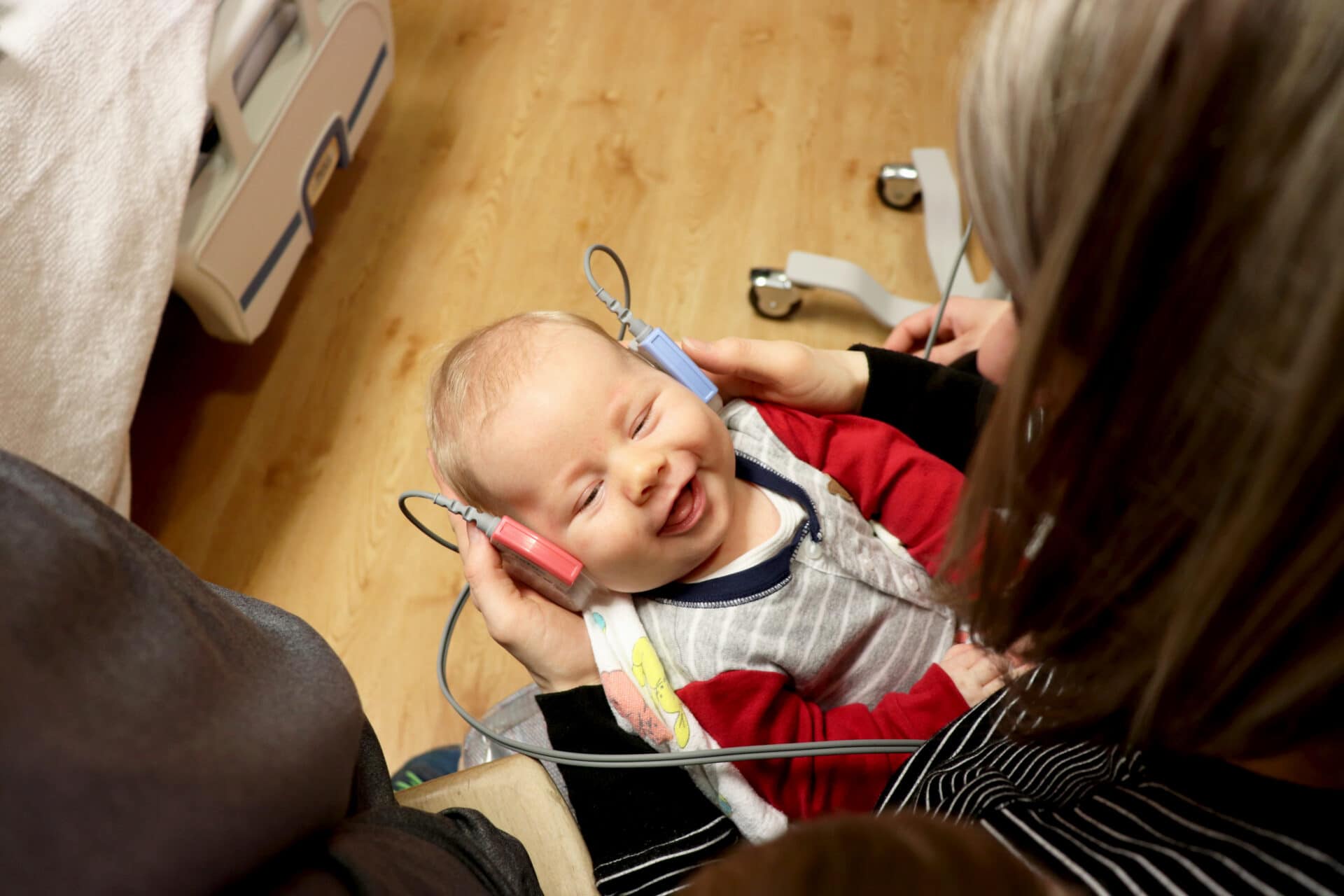
Babies will receive a grade of “pass” or “rescreen”. Babies that pass the test should not have hearing problems. It is still important to watch for hearing or speech and language problems. If a child has any risk factors, which include, but are not limited to:
- Family history of childhood hearing loss
- The infant has a syndrome
- The infant becomes sick with bacterial meningitis
- The infant receives a head injury with a loss of consciousness or skull fracture
- The infant has ongoing ear infections for at least 3 months
- The infants’ parent/caregiver is concerned about hearing, speech or overall development
Babies that need to be “rescreened” will be referred to an audiologist before the baby is 3 months of age. This does not necessarily mean that the baby has a hearing problem, but the baby does need to have their hearing evaluated to determine hearing ability. Often times babies with normal hearing need to be rescreened when the ear canal is blocked with birth residue (vernix), fluid in the middle ear or simply because the baby was too fussy during the test to achieve satisfactory results.
Babies that were born at Windom Area Health prior to implementing the newborn hearing screening or in hospitals without this technology should seek medical advice from their family physician. Screening can be done on an outpatient basis with a physician’s referral. Accurate tests can only be performed on babies under 6 months of age.
Milestones to Watch For
Caregivers should watch for the following hearing and speech development milestones as their children grow and develop. If you suspect there is a problem, contact your pediatrician or family physician immediately.
Because hearing impairment has no visual indicators, early detection is very important. In the United States 24,000 children are born every year with a hearing impairment. Although hearing impairment is far more common than many conditions typically screened in newborns, such as PKU, Hypothyroid, Hemoglobinopathy and Cystic Fibrosis, less than 15 percent of newborns in the U.S. are screened for hearing impairment at birth. This standard testing is critical in detecting hearing impairment.
For additional information about newborn hearing screening, contact Windom Area Health (507) 831-2400.
Thank You
Windom Area Health is fortunate to be able to offer this technology to patients. A number of generous contributors enabled Windom Area Health to receive this technology, including the Minnesota Lion's Club, which matched donations from the following: Eagles Jimmy Durante Grant, Windom Area Shriner Club, Windom Area CB Club, Windom Eagles Auxiliary, Windom Lion's Club, Masonic Lodge- Prudence #97, Windom Workers 4-H Club, and tips earned at the Ducks Unlimited Banquet.
Great Beginnings
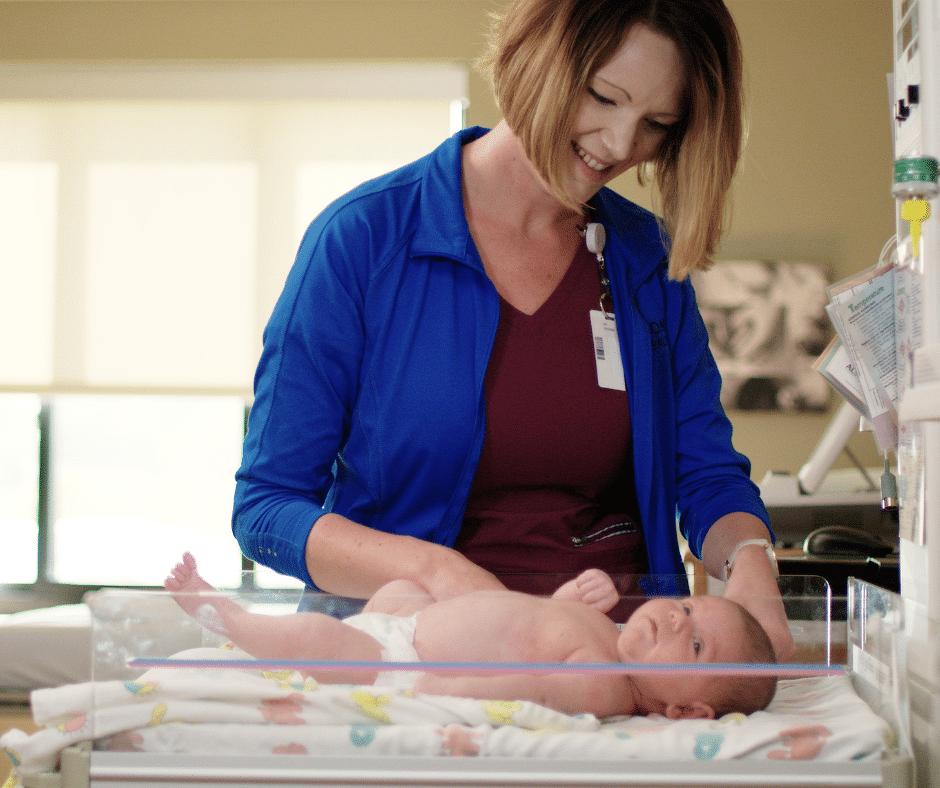
Windom Area Health offers complimentary follow-up appointments to all moms and babies. The appointments, called Great Beginnings, will be scheduled sometime within the first week of discharge from the hospital and will be considered an extension of the hospital stay. Appointments will generally take 20-60 minutes and be held at the hospital. A registered nurse, who is also a lactation counselor, will provide an exam for mom covering delivery follow-up, breastfeeding assistance if needed, and wellness screenings. Baby’s exam will cover weight, feeding, cord condition, jaundice, and other assessments.
The exam is not meant to replace the follow-up that will be scheduled with the primary care provider, but to be a bridge to ease the transition with a new baby.
Our lactation counselor has explained a few of the reasons parents should opt to schedule the appointment. “While it’s often intimidating to leave the house the first week, it’s a great, safe opportunity to venture out. Some babies don’t show signs of jaundice until after discharge and this appointment offers ideal timing to check to make sure baby’s levels are safe. Also, breastfeeding issues often present themselves the first week and if we can help mom overcome them, it will help set the course for a successful feeding future."
Safe Place for Newborns Program
Windom Area Health is a Safe Place for Newborns hospital. This program allows a mother to anonymously leave her unharmed newborn, up to 72 hours old, with a hospital employee at any hospital in Minnesota. No police will be called, and the mother's identity will not be questioned.
Any newborn brought to the hospital under the Safe Place for Newborns program will be cared for and provided any necessary medical services until placement in foster care is arranged.
For more information:
Call: 612-317-2895
Email: [email protected]
Toll-free Crisis Line: 877-440-2229
